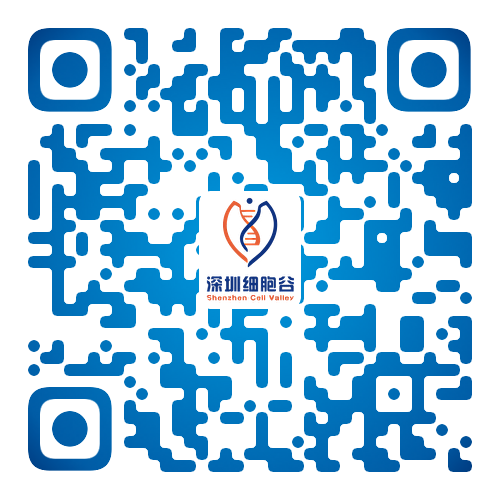Shenzhen Cell Valley 2024 highlights work inventory - Core products
The following is an inventory of the fourth highlights of Shenzhen Cell Valley 2024 - Products:
1. Adult allogeneic NK cells
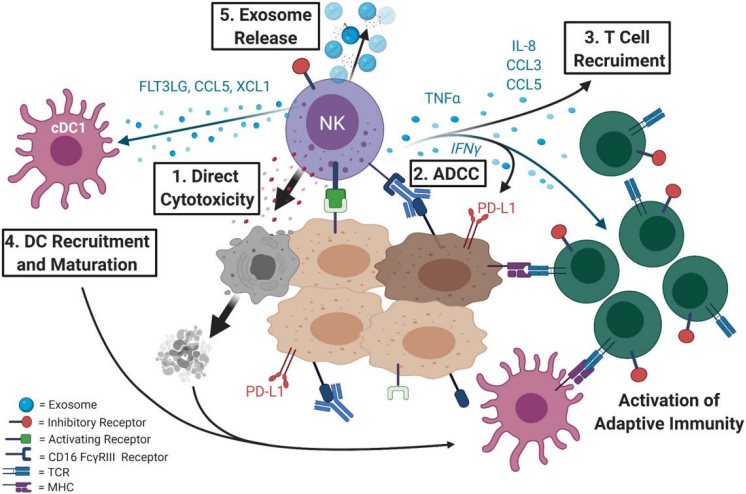
APUNK™ (Allogeneic PB/UCB Natural Killer cells) is a family of non-modified allogeneic NK cell therapy products developed and launched by Shenzhen Cell Valley. Named after the latest breakthrough of NK cell SDAP (Screening, Detection, Amplification, Purification) technology "APUNK" in Cell Valley.
APUNK™ cell products can multiply more than 10,000 times in vitro to meet the number of cells required for clinical infusion. The purity of the prepared NK cells was greater than 99%, and the T cells < 0.1%, which was much higher than the allograft standard recognized by the US FDA (NK cells > 90%, T cells < 5%).
2. Exosomes from MSCs
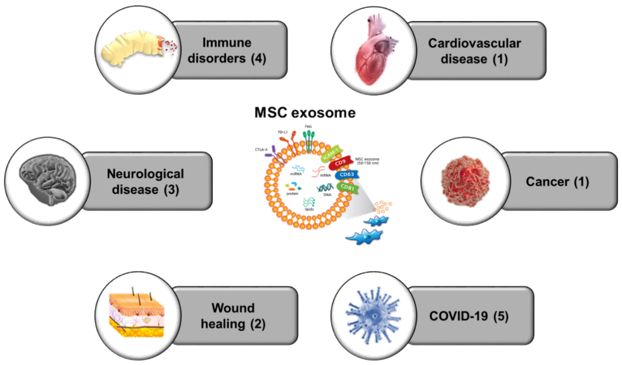
MSC-derived exosomes are the main substances responsible for the paracrine effect of MSCs and are one of the most widely studied and used exosomes. It contains similar therapeutic growth factors and mRNA and other bioactive substances as MSCs, and has therapeutic effects such as tissue repair and immune regulation. At the same time, it has unique advantages, such as: no self-replication ability, so there is no tumorigenicity; The nanoscale volume avoids capillary interception and can reach the damaged site of the central nervous system through the blood-brain barrier to play a biological role.
3. Nk-derived exosomes
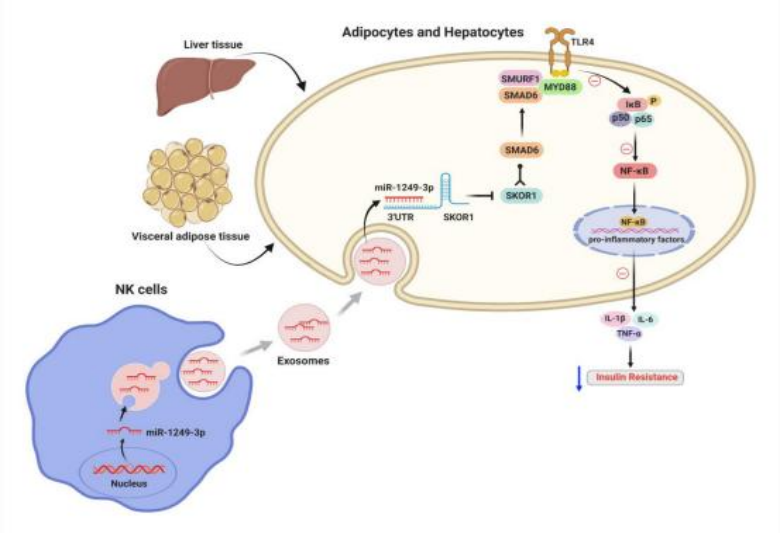
NK cell exosomes contain a variety of lytic particles (perforin, granzyme), cytokines (TNF-α, IL-10, IFN-γ), chemokines (CCL3, CCL4, CCL5) and growth factors (GM-CSF) that induce target cell death, which have attracted much attention because of their direct or indirect anti-tumor effects. NK cell exosomes prepared by Shenzhen Cell Valley have been shown to exhibit dose-dependent antitumor activity in vitro. In addition, NK cell exosomes also have potential applications in the treatment of various diseases such as diabetes and skin diseases.
4.GDT cells
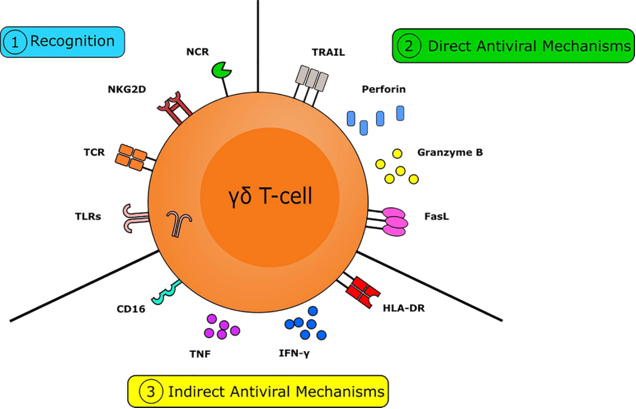
γδT cells account for 0.5% to 5% of the T cell population, and their TCRS are composed of γ-chain and δ-chain, which mainly exist in epithelial and mucosal tissues, such as skin and intestine. γδT cells and αβT cells have in common the ability to perform cytotoxic effects (ADCC) and produce pro-inflammatory cytokines. The biggest difference is that γδT cells do not have the limitations of MHC, and have the characteristics of universal cell therapy products. γδT cells can kill tumor cells directly: after migrating to the local tumor environment, they can dissolve cancer cells through the perforin-granase pathway; Cancer cells can also be destroyed by ligands TRAIL and FasL. γδT cells also kill tumor cells indirectly: by targeting tumor cells through antibody-dependent cytotoxic effects (ADCC). γδT cells are important early sources of secreting cytokines (IFN-γ and TNF-α, etc.). Both IFN-γ and TNF-α inhibit cancer growth through multiple mechanisms. γδT cells also exert their indirect antitumor effects by interacting with B cells, DC cells, αβT cells, and NK cells, respectively.
5.MSCs
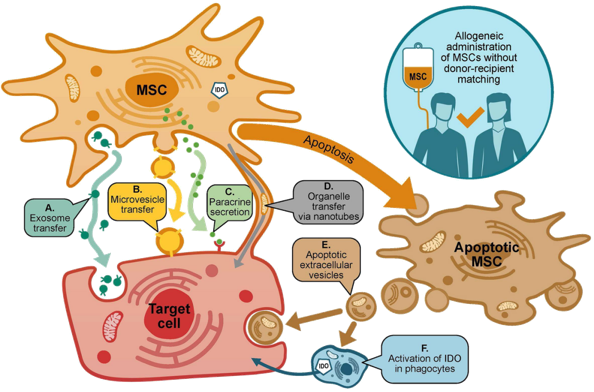
Mesenchymal Stem cells (MSCs) are pluripotent adult stem cells with self-renewal ability and derived from mesoderm, which can differentiate into a variety of Cell types, such as chondrocytes, adipocytes, osteoblasts and other cell types, so they are used in many types of research. It has been shown to be safe and effective in multiple clinical trial studies (CTSs) in a variety of diseases. Compared with other stem cells, MSC has almost no tumorigenicity and tumorigenicity while having multiple differentiation potentials, and there are no ethical problems.
6.CAR-NK cells
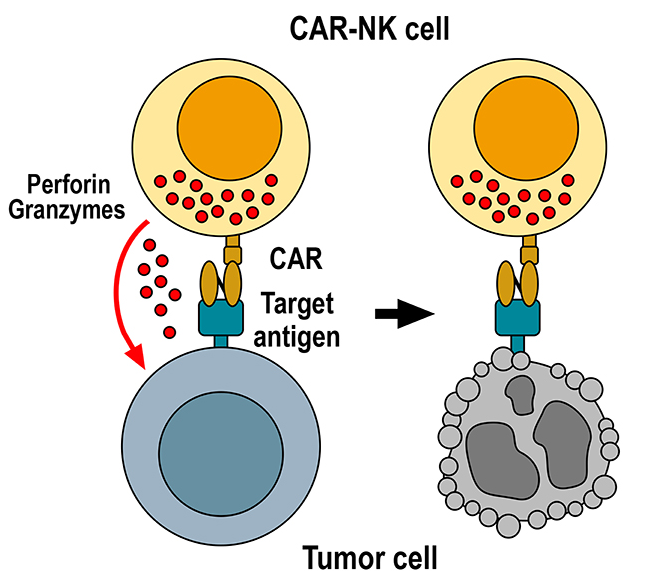
CAR-T cell therapy also faces some challenges, including serious side effects such as cytokine release syndrome (CRS) and neurotoxicity. CAR-NK cells have some unique advantages over CAR-T cells, the most important of which is that they have a higher safety profile and are more suitable for "off-the-shelf" therapies, offering off-the-shelf treatment products. At present, Cell Valley provides a variety of target options, covering common targets such as hematoma and solid tumor, and provides the whole process service from NK cell collection, transduction to expansion. Taking CD19CAR as an example, the positive rate of CAR-NK can reach more than 50%, the purity of NK is greater than 95%, and the proportion of T cells and B cells is less than 1%. It has reached the international standard for allotransplantation and can be expanded to 10,000 times within a month, helping customers accelerate the research process in the field of CAR-NK.
7.BAEV coating system

International first: BaEV coated engineered stable transfer cell line: To achieve the world's leading development and industrial application of BaEV coated retrovirus packaging engineering cell line with complete independent intellectual property rights; The commonly used VSV-G lenaviruses or GaLV retroviruses on the market are not enough to solve the problem of efficient NK cell transduction, but Shenzhen Cell Valley has achieved a technological breakthrough in BaEV envelope, and the efficient transduction of NK, T, GDT and other primary cells can be achieved by using BAEV-WT to stabilize the virus-producing cell line. The positive rate of transduced primary cells was up to 80-90% and remained stable without affecting the viability and proliferation of primary cells.
8.eVLP delivery

Engineered virus-like particles (eVLP) can overcome multiple bottlenecks in protein complex delivery. eVLP is DNA-free and delivers ribonucleoprotein (RNP) directly to gene editors with minimal off-target. Keep up with the cutting-edge hot spots, develop new delivery technologies based on retroviruses, and develop new gene editing technologies such as knockout, knockout, and fixed-point knockout to improve safety and solve the drawbacks of existing delivery technologies. At present, efficient knockout has been carried out for TRAC and other targets, and stable eVLP system is being developed to help industrial large-scale production;
9. Shenzhen Cell Valley immune cell dedicated complete culture medium

It is used for the activation, expansion and culture of human primary PBMC derived T cells, NK cells, GDT cells and mouse primary T cells and NK cells. It is only customized and used for one-stop service customers.
1. Adult allogeneic NK cells

APUNK™ (Allogeneic PB/UCB Natural Killer cells) is a family of non-modified allogeneic NK cell therapy products developed and launched by Shenzhen Cell Valley. Named after the latest breakthrough of NK cell SDAP (Screening, Detection, Amplification, Purification) technology "APUNK" in Cell Valley.
APUNK™ cell products can multiply more than 10,000 times in vitro to meet the number of cells required for clinical infusion. The purity of the prepared NK cells was greater than 99%, and the T cells < 0.1%, which was much higher than the allograft standard recognized by the US FDA (NK cells > 90%, T cells < 5%).
2. Exosomes from MSCs

MSC-derived exosomes are the main substances responsible for the paracrine effect of MSCs and are one of the most widely studied and used exosomes. It contains similar therapeutic growth factors and mRNA and other bioactive substances as MSCs, and has therapeutic effects such as tissue repair and immune regulation. At the same time, it has unique advantages, such as: no self-replication ability, so there is no tumorigenicity; The nanoscale volume avoids capillary interception and can reach the damaged site of the central nervous system through the blood-brain barrier to play a biological role.
3. Nk-derived exosomes

NK cell exosomes contain a variety of lytic particles (perforin, granzyme), cytokines (TNF-α, IL-10, IFN-γ), chemokines (CCL3, CCL4, CCL5) and growth factors (GM-CSF) that induce target cell death, which have attracted much attention because of their direct or indirect anti-tumor effects. NK cell exosomes prepared by Shenzhen Cell Valley have been shown to exhibit dose-dependent antitumor activity in vitro. In addition, NK cell exosomes also have potential applications in the treatment of various diseases such as diabetes and skin diseases.
4.GDT cells

γδT cells account for 0.5% to 5% of the T cell population, and their TCRS are composed of γ-chain and δ-chain, which mainly exist in epithelial and mucosal tissues, such as skin and intestine. γδT cells and αβT cells have in common the ability to perform cytotoxic effects (ADCC) and produce pro-inflammatory cytokines. The biggest difference is that γδT cells do not have the limitations of MHC, and have the characteristics of universal cell therapy products. γδT cells can kill tumor cells directly: after migrating to the local tumor environment, they can dissolve cancer cells through the perforin-granase pathway; Cancer cells can also be destroyed by ligands TRAIL and FasL. γδT cells also kill tumor cells indirectly: by targeting tumor cells through antibody-dependent cytotoxic effects (ADCC). γδT cells are important early sources of secreting cytokines (IFN-γ and TNF-α, etc.). Both IFN-γ and TNF-α inhibit cancer growth through multiple mechanisms. γδT cells also exert their indirect antitumor effects by interacting with B cells, DC cells, αβT cells, and NK cells, respectively.
5.MSCs

Mesenchymal Stem cells (MSCs) are pluripotent adult stem cells with self-renewal ability and derived from mesoderm, which can differentiate into a variety of Cell types, such as chondrocytes, adipocytes, osteoblasts and other cell types, so they are used in many types of research. It has been shown to be safe and effective in multiple clinical trial studies (CTSs) in a variety of diseases. Compared with other stem cells, MSC has almost no tumorigenicity and tumorigenicity while having multiple differentiation potentials, and there are no ethical problems.
6.CAR-NK cells

CAR-T cell therapy also faces some challenges, including serious side effects such as cytokine release syndrome (CRS) and neurotoxicity. CAR-NK cells have some unique advantages over CAR-T cells, the most important of which is that they have a higher safety profile and are more suitable for "off-the-shelf" therapies, offering off-the-shelf treatment products. At present, Cell Valley provides a variety of target options, covering common targets such as hematoma and solid tumor, and provides the whole process service from NK cell collection, transduction to expansion. Taking CD19CAR as an example, the positive rate of CAR-NK can reach more than 50%, the purity of NK is greater than 95%, and the proportion of T cells and B cells is less than 1%. It has reached the international standard for allotransplantation and can be expanded to 10,000 times within a month, helping customers accelerate the research process in the field of CAR-NK.
7.BAEV coating system

International first: BaEV coated engineered stable transfer cell line: To achieve the world's leading development and industrial application of BaEV coated retrovirus packaging engineering cell line with complete independent intellectual property rights; The commonly used VSV-G lenaviruses or GaLV retroviruses on the market are not enough to solve the problem of efficient NK cell transduction, but Shenzhen Cell Valley has achieved a technological breakthrough in BaEV envelope, and the efficient transduction of NK, T, GDT and other primary cells can be achieved by using BAEV-WT to stabilize the virus-producing cell line. The positive rate of transduced primary cells was up to 80-90% and remained stable without affecting the viability and proliferation of primary cells.
8.eVLP delivery

Engineered virus-like particles (eVLP) can overcome multiple bottlenecks in protein complex delivery. eVLP is DNA-free and delivers ribonucleoprotein (RNP) directly to gene editors with minimal off-target. Keep up with the cutting-edge hot spots, develop new delivery technologies based on retroviruses, and develop new gene editing technologies such as knockout, knockout, and fixed-point knockout to improve safety and solve the drawbacks of existing delivery technologies. At present, efficient knockout has been carried out for TRAC and other targets, and stable eVLP system is being developed to help industrial large-scale production;
9. Shenzhen Cell Valley immune cell dedicated complete culture medium

It is used for the activation, expansion and culture of human primary PBMC derived T cells, NK cells, GDT cells and mouse primary T cells and NK cells. It is only customized and used for one-stop service customers.


